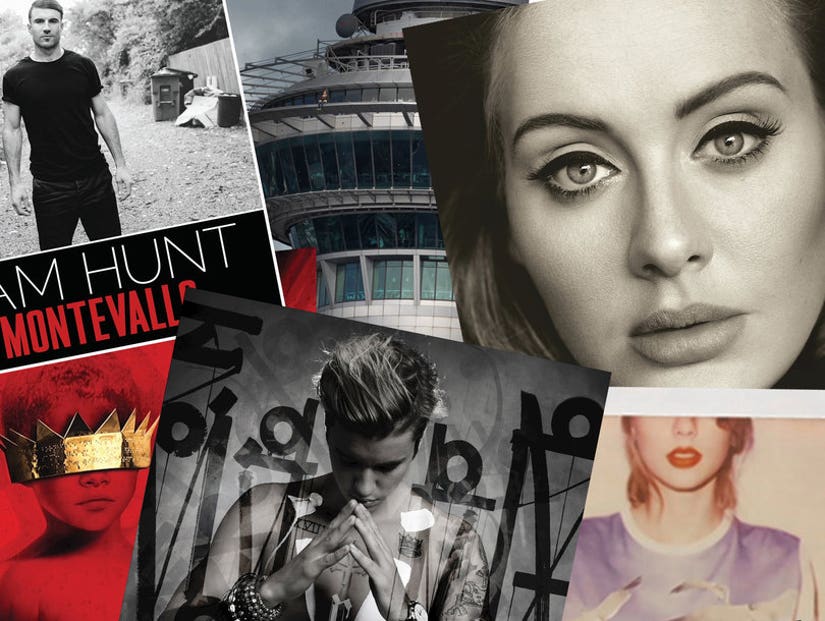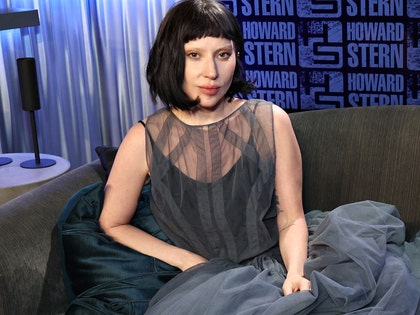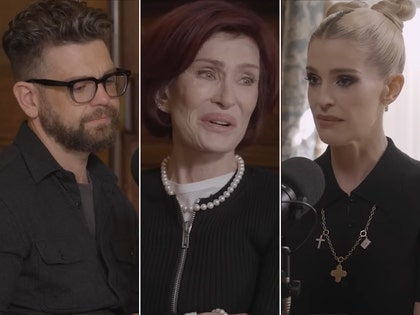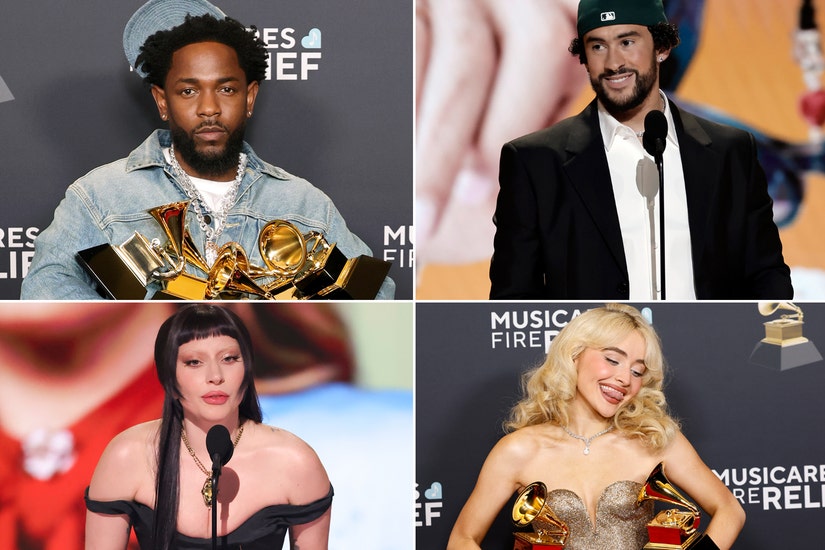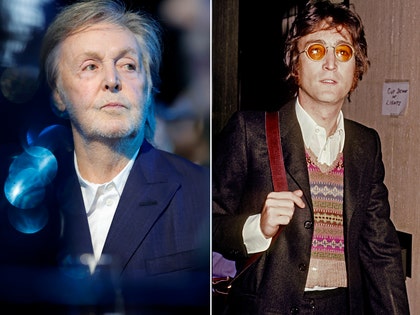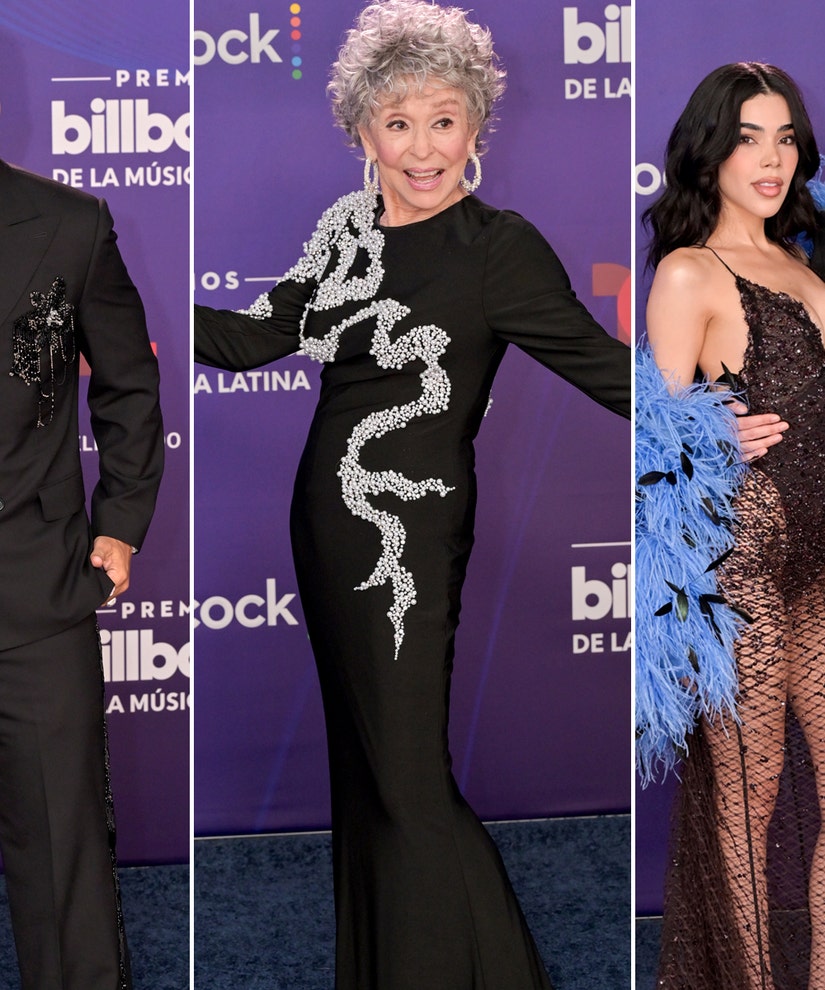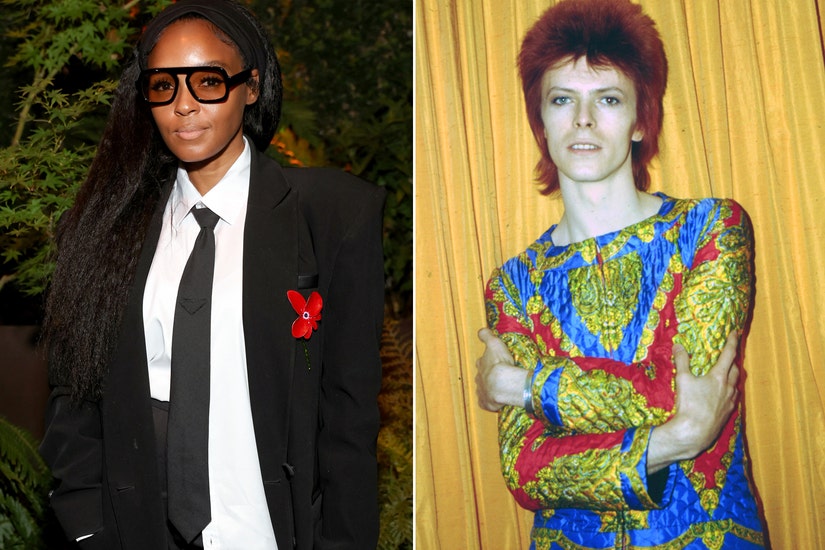Is the album dead?
With sales at an all-time low and Fergie trying to mount a comeback with a visual album experience similar to Beyoncé's "Lemonade," while major pop rock act One Republic announced earlier this year they're only churning out singles from now on, TooFab turned to a variety of music biz experts to weigh in on that question, and the answer was unanimously, "Yes."
"I just don't think consumers care about the album anymore," Evan Lipschutz, vice president of A&R at Warner/Chappell Music, told TooFab. "I think [artists] are making visual albums when they want to do something truly artistic versus just make songs for quick consumption. I think that's more of a way to set music apart so people actually buy it."
 Getty
Getty
Why Nicki Is the Music Biz's Reigning Queen of Collaborations: 76 and Counting
View StoryIt remains to be seen if Fergie's fans will gobble up Friday's new release, "Double Dutchess: Seeing Double," the way Beyoncé fans did "Lemonade," but Lipschutz and two other industry insiders have seen enough evidence to declare the album, as we've known it, is a dying product. Here are seven reasons why.
Streaming
Jeremy Skaller, who produced Jay Sean's No. 1 hit "Down" and is also a manager at The Heavy Group, cites technology as a major factor behind the death of the LP. Thanks to Spotify, Pandora, Google Play and the dozens of other streaming services available, consumers don't have to commit to buying an entire album to hear the tracks that strike their curiosity.
"The overall culture of music consumption has shifted because of technology," he told TooFab. "Now, you can jump from thing to thing much easier. You can have more options, more resources, more ability to stream, less need to have to buy things right away. So consumers don't have to be committed to any one thing, such as an album."
Apple's iPod
Eric Alper, a veteran music publicist who's worked with Ringo Starr of The Beatles and Sinéad O'Connor, told TooFab the release of the Apple iPod in 2001 forever changed the game.
"The iPod allowed people to listen to what they wanted, when they wanted, whenever they wanted," he explained. "That allowed people to forgo all of the filler of the albums that they didn't want."
As much as bitter artists and fans point their fingers at streaming platforms for killing album sales, Alper pointed out it was the iPod that began the massive shift toward singles.
"For the same reason that the iPod succeeded and thrived, streaming services like Spotify and Pandora and Google Play and Apple Music are thriving now. This generation doesn't know or completely understand the concept of the album," he said. "They have no interest in listening to things that they don't know."
 Getty
Getty
Pharrell Williams Was On His 'Jon Snow Sh-t' at VH1's Hip-Hop Honors: 'The Enemy Is This Decisive Mentality'
View StoryThe '90s
Lipschutz -- a record label executive who has been in the business so long he developed Good Charlotte in 1996 and has worked with major labels Sony, Island Records and Atlantic Records -- told TooFab "people just aren't buying albums," and he suspects that could be a reaction to having to suffer through a lot of bad albums two decades ago.
"A lot of times, there would be one or two killer singles on an album and then a bunch of junk," he said.
"People were spending 25 bucks for a CD and being really disenfranchised by it," Lipschutz explained. "The singles market is definitely a reaction to that lack of quality music at a really high price point. Right now, you could buy a song for .69 or .99 cents or stream it for 10 bucks a month, and you get what you want when you want it. It's also the immediacy of it, too. If a song comes out on Friday, you want to listen to it on Friday, and you can."
Album's Can't Match the Public's Appetite for Immediate Consumption
According to Lipschutz, "Music consumption is basically happening via a streaming model at this point and the consumption rate happens so much faster, so [the industry] has to keep feeding the fan base with music. This goes back to the original model of putting out an album every 18 months. Fan bases are already off to the next thing by then, so you have to keep feeding the machine."
"The same thing is happening with TV," he added. "You can binge-watch a Netflix series in a weekend, and then you're like, 'Alright, now what?'"
Skaller said today's generation of music consumers has become "platform agnostic."
"Which means you're gonna be more malleable, so jumping from artist to artist can be done very easily now," the producer told TooFab. "If they get stuck with a full album, three or four songs in, they're going, 'OK, what's next?' And because they have the option to figure out what's next with the click of their finger on a screen, they can do that."
Songs Can Be Produced Faster, Cheaper and More Easily Than Ever Before
Lipschutz told TooFab that the declining cost of recording equipment has also played a huge factor in the shift of music output.
"Because home recording equipment has become so inexpensive and really good, people are able to make music a lot quicker rather than spend $2,500 a day in a studio and make an album over the course of four months," he explained. "Now, [artists] are making full songs in a week, and there's all these different services to release them right away."
"They don't have to wait and do a traditional form of making an album for six months, setting it up, putting it out and then promoting it for a year," he said.

Why Avril Lavigne Has Been Declared the 'Most Dangerous Celebrity' on the Internet
View StoryTechnology Has Changed Our Culture
Skaller told TooFab, "Most music consumers are not in the business of buying albums because they've been raised in a culture in which jumping around and skipping from platform to platform is acceptable."
"The attention to an album requires detail and some intestinal fortitude, like, "Yeah, I'm gonna listen to the whole album the whole way through,'" he said. "People don't want that these days because they don't have to."
Record Labels Are No Longer Betting on Records
Alper told TooFab that artists don't get a "second chance" the way they used to, so record labels are forced to put all of their resources into making sure an artist's first single is a smash.
"When record labels are dealing with a funding into their company that's not based on $20 CDs anymore or $15 DVDs or $10 iTunes albums, they have to put all of their efforts toward that one single, making sure that that single breaks," Alper explained.
"The record labels are smart," he said. "When you start dictating to your customer base how they should be consuming music, then you're in trouble. And the music industry has been going through that for years with every new format they created, whether it was a vinyl single, or the cassette tape, or the 8-track tape, or the CD or the mp3, and now with music streaming services. The audience will dictate back to the company how they want to consume their music, and right now, they want to consume singles," he said.
Skellar also pointed out, "An album costs a lot to make."
"Rolling multiple singles out is much cheaper because you're not as invested," he said.

